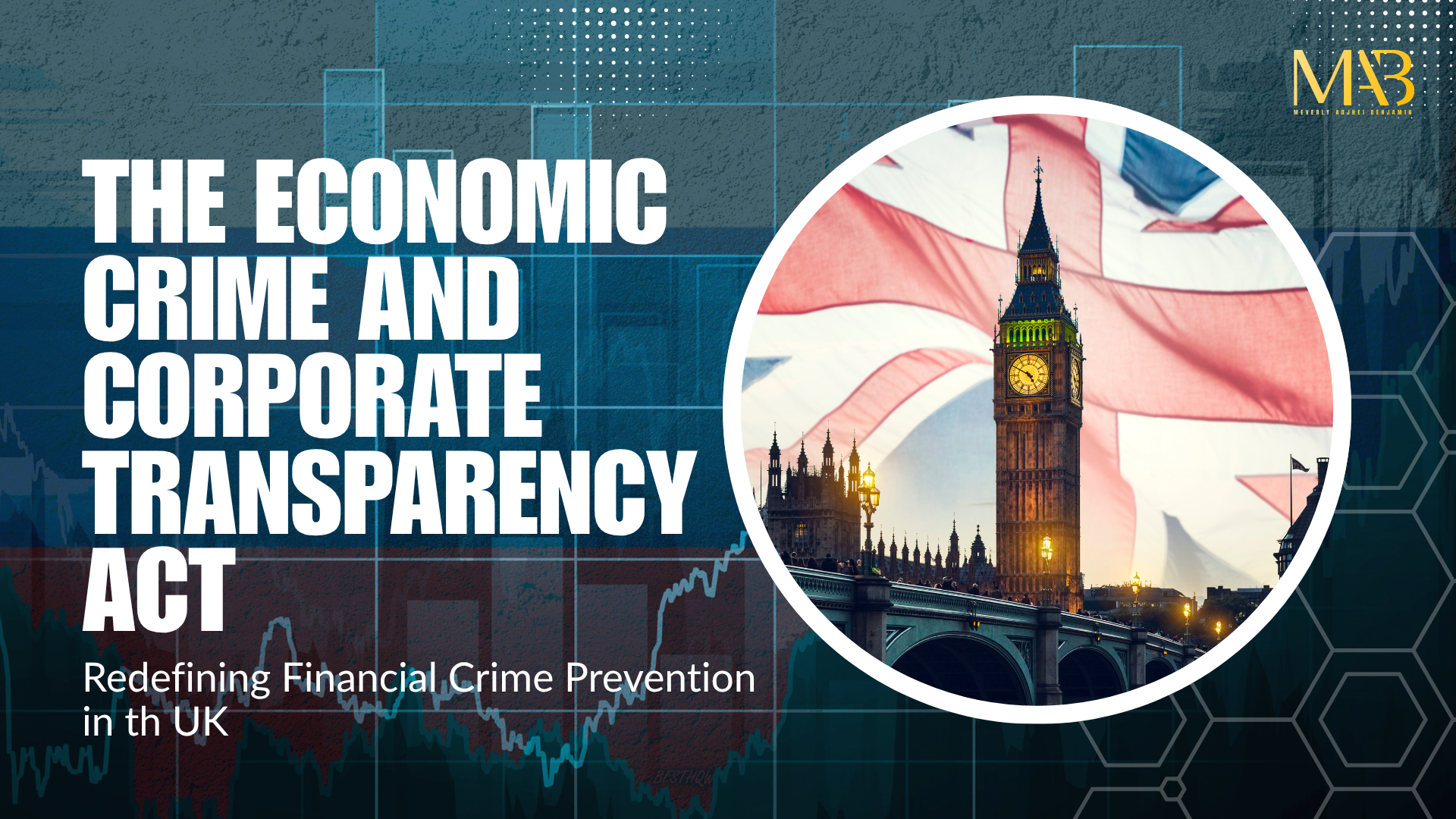The Economic Crime and Corporate Transparency Act: Redefining Financial Crime Prevention in the UK
The UK’s approach to financial crime prevention has fundamentally changed. The Economic Crime and Corporate Transparency Act 2023 isn’t just another regulatory update, it’s a complete transformation of how Britain tackles money laundering, corporate fraud, and economic crime.
Why This Matters
Following heightened scrutiny of illicit finance flowing through London, particularly after Russia’s invasion of Ukraine, the UK government introduced sweeping reforms. The Act received Royal Assent in October 2023, with provisions rolling out throughout 2024 and 2025. For compliance professionals, regulatory advisors, and legal consultants, understanding these changes is now business-critical.
The Major Shifts
Companies House Transformed
Companies House has evolved from a passive registry into an active regulator with real enforcement powers. The Registrar can now reject filings, demand evidence, and strike off non-compliant companies. Identity verification is mandatory for directors, people with significant control (PSCs), and anyone filing on behalf of companies.
End of Anonymous Ownership
Overseas entities owning UK property must register and disclose beneficial owners. Foreign companies can no longer hide behind shell structures, transparency is non-negotiable. Authorized Corporate Service Providers (ACSPs) now face stringent anti-money laundering supervision.
Corporate Criminal Liability
Large organizations can be held criminally liable for failing to prevent fraud, even without senior management involvement. This “failure to prevent” offense means having adequate anti-fraud procedures isn’t optional; it’s a legal requirement.
Enhanced Information Sharing
Companies House, law enforcement, the Financial Conduct Authority (FCA), and HMRC now share data seamlessly. A red flag in one area can trigger multi-agency investigations.
What This Means for Business
Compliance costs are rising. Enhanced verification, robust record-keeping, and authorized software for filing accounts all add expense, particularly for smaller businesses.
Due diligence standards have evolved. Simply checking Companies House records is insufficient. You need verified documentation and comprehensive background checks.
Director accountability has intensified. The threshold for disqualification has lowered, and past conduct with dissolved companies can now trigger action.
Practical Steps for Regulatory Advisors
- Conduct gap analyses against the Act’s requirements
- Update verification procedures for directors and beneficial owners
- Review client corporate structures for transparency weaknesses
- Establish ACSP relationships if you’re not authorized yourself
- Communicate proactively, don’t wait for clients to ask
The Bottom Line
The UK has decisively ended the era of corporate opacity. While implementation brings challenges, higher compliance costs, complexity for small businesses, data privacy concerns, the message is clear: legitimate business will benefit from a leveled playing field.
For regulatory advisors and legal consultants, this represents both challenge and opportunity. Clients need expert guidance navigating these requirements. Those who master the Act’s complexities position themselves as indispensable advisors in an increasingly regulated environment.
The question isn’t whether these changes affect your practice, it’s whether you’re prepared to lead clients through them effectively.


No responses yet